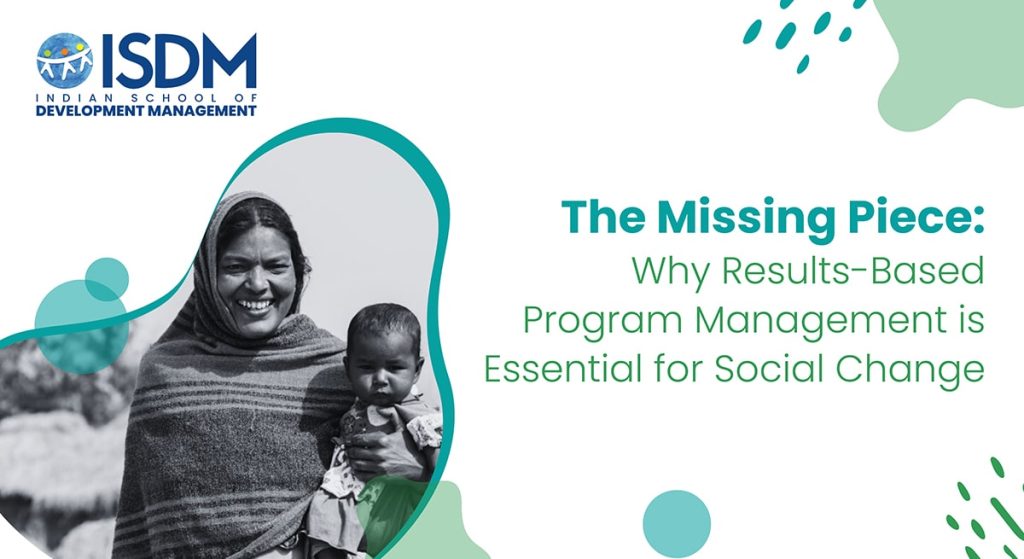Social change initiatives in India are driven by a collective desire to make a positive difference. Billions of dollars are poured into programs aimed at tackling complex issues like poverty, education, and healthcare. But often, the impact of these programs is difficult to measure, leading to a nagging question: Are we truly achieving lasting change?
This is where Results-Based Program Management (RBPM) steps in as the missing piece. RBPM is a structured approach that equips program managers with the skills and tools to design, implement, and monitor programs strategically, ensuring they deliver measurable social impact.
Why Results-Based Program Management Matters in India
India’s development sector faces unique challenges. Here’s how RBPM can address them:
- Focus on Outcomes, Not Outputs: Many programs measure activities (outputs) like workshops conducted or meals served. RBPM emphasises measuring outcomes, the actual change achieved in people’s lives (e.g., increased literacy rates or improved health outcomes). This ensures resources are directed towards programs with demonstrably positive impacts.
- Data-Driven Decision Making: Social change is complex. RBPM equips program managers with the skills to collect and analyse data throughout the program cycle. This data informs crucial decisions about resource allocation, program adjustments, and future interventions, leading to greater efficiency and effectiveness.
- Transparency and Accountability: With RBPM, stakeholders like donors and beneficiaries have a clear understanding of program goals, how progress is measured, and the results achieved. This transparency fosters trust and accountability, leading to greater support for impactful programs.
Empowering Changemakers: The ISDM Results-Based Program Management Certificate Program
The ISDM Results-Based Program Management Certificate Program equips you with the knowledge and skills to become a leader in driving social change through effective program management.
- Developed for the Indian Context: The curriculum is designed specifically for the Indian development sector, addressing the unique challenges and opportunities faced by social change organisations in the country.
- Comprehensive Curriculum: The program delves into all aspects of RBPM, from understanding program design principles to crafting a robust monitoring and evaluation system.
- Interactive Learning: The program offers a unique blend of instructor-led sessions, project-based learning, case studies, and coaching, ensuring a well-rounded learning experience.
- Networking and Growth: Connect with a community of passionate development professionals and build your network to further your career and social impact goals.
Who Should Take This Program?
This program is designed for:
- Aspiring Program Managers: Individuals seeking a career in program and project management roles within the development sector.
- Development Professionals: Those looking to enhance their existing program management skills and advance their careers.
- Changemakers: Anyone passionate about social change who wants to learn how to design and implement programs that create lasting impact.
Invest in Making a Difference
The ISDM Results-Based Program Management Certificate Program is an investment in your ability to make a real difference. By mastering RBPM, you will gain the skills to:
- Design programs with clear goals and measurable outcomes.
- Manage resources effectively and efficiently.
- Lead and motivate teams to achieve program objectives.
- Make data-driven decisions for continuous program improvement.
- Become a recognised expert in program management within the development sector.
Take the first step towards a fulfilling career driving social change. Enrol in the ISDM Results-Based Program Management Certificate Program today!
Program Details:
- Duration: 3 months (60 hours)
- Delivery Mode: Online live sessions
- Cost: INR 60,000 + taxes (scholarships available)




